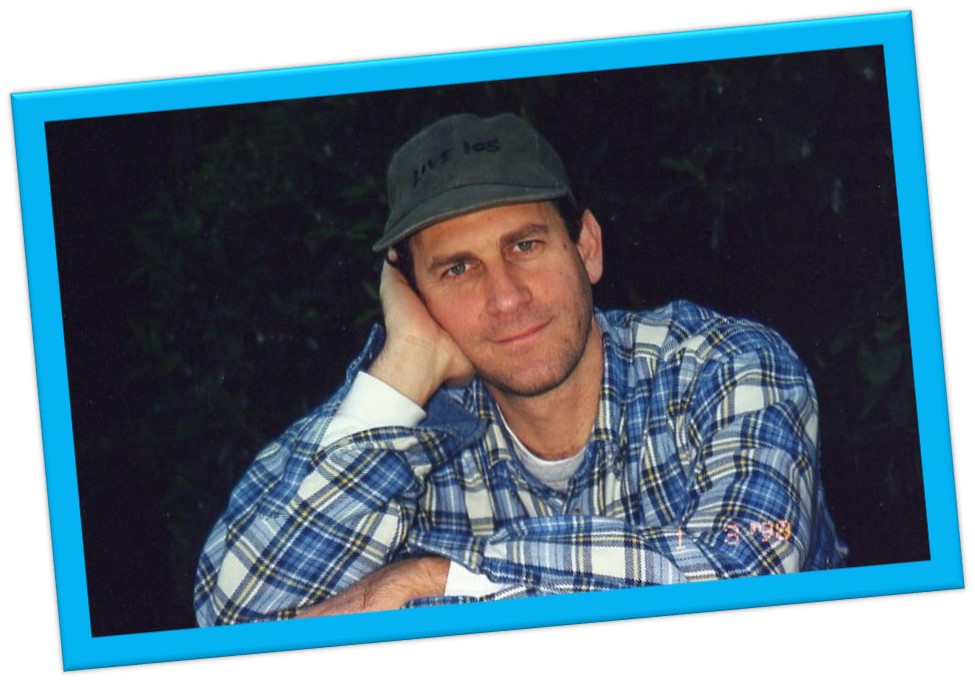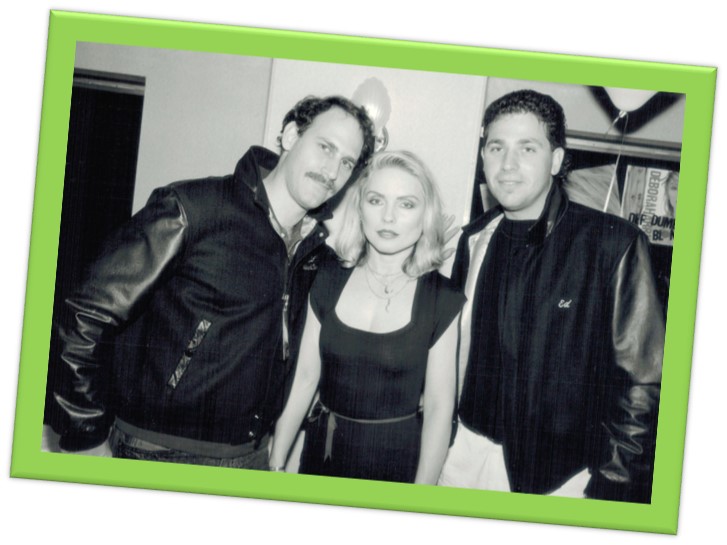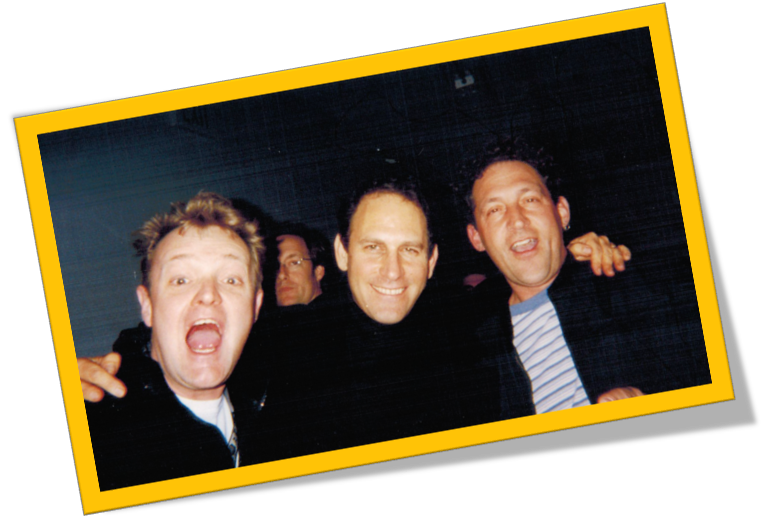 Richard Sands got the “radio bug” at 5 years-old, listening to his transistor radio. He’s a great example of our post from earlier this week about creating “a new version of yourself.” After a long stint programming the iconic Live 105 in San Francisco, Richard ventured out to create “The Sands Report,” the #1 Alternative radio news weekly. It’s a forum where he reports on the comings and goings of the format, while always offering up his insightful take on Alternative – and radio in general.
Richard Sands got the “radio bug” at 5 years-old, listening to his transistor radio. He’s a great example of our post from earlier this week about creating “a new version of yourself.” After a long stint programming the iconic Live 105 in San Francisco, Richard ventured out to create “The Sands Report,” the #1 Alternative radio news weekly. It’s a forum where he reports on the comings and goings of the format, while always offering up his insightful take on Alternative – and radio in general.
In today’s edition of “Guest List,” Richard digs into his decades of experience – inside and outside radio – to remind us of some fundamentally smart things to do for your company, your station, and yourself. Richard is one of the smartest, most caring people I’ve met in all my years in radio. As a guy who once consulted him, I always got the feeling he was quietly consulting me.
Here are his personal BTWs. – FJ

BTW. By the way, I haven’t been in programming for a while. After all, “The Sands Report” is celebrating its 15 year anniversary this week, so it’s been a minute since I was behind the actual wheel of a station. But if you program long enough (and I did, quite long enough, thank you very much), a few things remain locked in the grey matter of your brain. Sure, I’ve forgotten far more than I ever learned, but these are some pearls of wisdom that did stick. And today, in order to spell Fred from having to dream up another blog post, I am passing along these personal B-T-W’s.
B: Be Smart, Hire Smart People. When conducting a job interview, make sure intelligence is the single most important attribute of the person you’re talking to. Because if you hire someone who isn’t smart, sooner or later (and most likely sooner), you’ll find plenty of reason to regret their lack of judgement, which seems to go hand-in-hand with lack of intelligence. Which reminds me. ALWAYS do your interviews in person. It’s a long story, but once I hired a guy sight unseen. Let’s just say it was a “big” mistake.
 T: Treat Your Airwaves Like Your Personal Canvas. ‘Cause they are. Aspire to inspire. Constantly have things happen that make your audience sit up and say, “I can’t believe what I just heard!” Create that sense of “you never know what’s gonna happen next.” Yes. Even in a PPM world that seems drained of such moments. If you can create an air of “predictable unpredictability,” you have a much better chance of getting people to habitually “use” your station. You’ve heard that radio is both an art and a science? Emphasize the art part of the equation. Make some magic between the records.
T: Treat Your Airwaves Like Your Personal Canvas. ‘Cause they are. Aspire to inspire. Constantly have things happen that make your audience sit up and say, “I can’t believe what I just heard!” Create that sense of “you never know what’s gonna happen next.” Yes. Even in a PPM world that seems drained of such moments. If you can create an air of “predictable unpredictability,” you have a much better chance of getting people to habitually “use” your station. You’ve heard that radio is both an art and a science? Emphasize the art part of the equation. Make some magic between the records.
W: Work The People Above You. Not just those “below” you. Make sure your boss knows what you are up to, and is in the loop on everything. To be successful, it helps to have the tools. And your boss is in a position to supply those tools. But you won’t be getting those tools if you are constantly surprising this person, especially if the surprise is not in the good way I described above.
B: Be Your Own Consultant. Yeah, Fred and the Jacobs boys are the best. I’m not saying to not have a consultant! What I am saying is that you should get out of the radio station every once in a while and really listen to your station, like a consultant would do when they make a market visit. Believe me, you’ll learn something about your station, just by listening!

T: Take Time Off. Speaking of getting out of the station, I still remember someone saying in an issue of “The Sands Report” that he’d been visiting radio stations, and the people working there were so pale, that they looked like they were working on a submarine! Here’s a novel idea: take the vacation time that’s owed to you. (That will put you in the minority of Americans, by the way.)
W: Whatever You Do, imagine how it would sound if it were told to a grand jury. Such as, “You expect the members of this grand jury to believe that it was your grandma who gave you the $10,000 that’s sitting in Chase Manhattan Bank right now? Come now, Mr. Sands.” Not that that really happened to me, or anything.
B: Be Remembered. Like, after your gone (and yep, you will be gone from that station sooner or later). One way to be remembered is to mentor someone. Take them under your arm and teach them what you know. Even if you don’t know anything.

T: Treat Your Employees The Way You Would Have Liked To Be Treated. That is before you became a big shot PD. Respect the opinions of others. Listen. Be kind. And always remember, what they say is true. You DO meet the same people on the way down that you met on the way up. Kinda pays to have been nice to them in the first place.
W: What’s Next? Finally, the way this business is, and has been for years now, you should always have a “Plan B” dancing around in your mind. I was lucky. My “Plan B,” to put out a weekly publication to spread my pearls of wisdom to Alternative programmers, actually worked out. Yours might too!
If you’d like to subscribe to “The Sands Report,” simply drop Richard a note here.
More Guest Lists
- Tamar Charney: 5 Tips For Great Podcasts
- Greg St. James: 5 Lessons Radio Can Learn From C-SPAN
- Jeff Smulyan: 5 Things Every Radio Professional Should Know About NextRadio
- Jim McGuinn: 5 Things The Current Knew It Had To Do When Prince Died
- Top 5 Reasons Radio Should Attend Podcast Movement
- How AI Can Give Radio Personalities More…PERSONALITY - April 23, 2025
- Can Radio Afford To Miss The Short Videos Boat? - April 22, 2025
- Media And Technology In 2025: Believe It Or Not! - April 18, 2025





Richard Sands is and has always been, a true class act!
Thanks for putting the spotlight on this most deserving and
fine chap —- a good soul!
Indeed he is, David. Thanks for the comment.
As a smart person coming up to the BA from LA in 1984, and after interning as a producer for Donahue and Roll at KROQ, I interviewed with Oz Medina for The Quake and then sent my tape to Richard and really thought I could work for Live 105, but it was not to be. I’m happy with the way things went and ended up, however. Obviously he was a good man to work for.
A total pro, Robin. Thanks for the note.
Excellent post Fred. Thank you for sharing. Richard’s thoughts reflect a lot of things I felt were important as a programmer (and honestly, a few things I didn’t).
My education continues…
Dan
Dan, we’re ALL learning. Richard’s got a great perspective. Thanks for the comment.